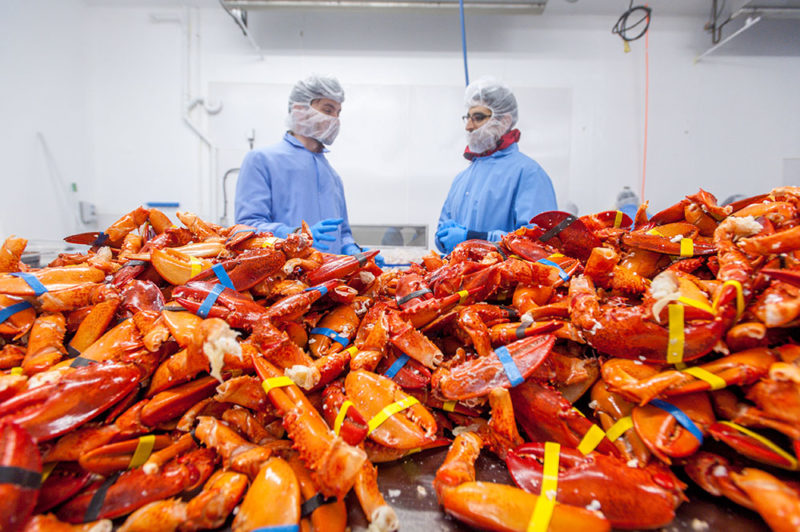Massachusetts could reform its long-standing limits on selling and processing lobster parts, in an effort to capture trade in frozen product now processed in Canada.
The state budget for fiscal year 2020 includes a provision that would set out a framework for new regulations governing the sale, transport and processing of unfrozen, shell-on lobster parts.
Pushed by state Sen. Bruce Tarr, the Republican minority leader in the state Senate, the effort to expand processing has bipartisan support seeking to overcome resistance to similar measures that passed the in the Senate of the legislature in the last three years, but failed to make it into law after opposition in the lower House.
Backers say too many Massachusetts lobsters end up shipped to Canadian processors, when the Bay State could be modernizing and expanding its own processing sector as Maine has been doing. Lobster can be sold live, cooked or canned in Massachusetts, but state law requires lobstermen and seafood vendors to sell or ship their lobsters out of state for processing.
“We have the second-largest lobster catch in the nation yet, without this change in law, our raw and frozen lobster parts are processed in Canada or Maine only to then be brought back to local consumers,” said Tarr in a statement after the measure was accepted by legislators in a final budget conference report. “By modernizing these lobster laws we bolster the fishing industry, give consumers more choices, and sustainably support coastal fishing communities.”
A study by the Massachusetts Division of Marine Fisheries recommended changing the processing law, citing growing consumer interest in value-added lobster products in the form of shell-on tails and claws. Massachusetts lobster could compete in the global market when processed in state, while now as much as 80 percent of those lobsters get shipped out for processing elsewhere, the agency reported.
While demand for lobster grows, the market has moved in favor of processed lobster parts. Most U.S. consumers just don’t know how to cook live lobsters, and prefer to use processed lobster products, the study found.
Maine processors who are competing with the heavyweight companies in Canada, and now seeking other market niches as the U.S. have targeted that same market and other nations bicker over trade and raise tariffs on seafood exports.
Some in the Massachusetts industry want to overcome the resistance there to processing.
“The Massachusetts Lobstermen’s Association greatly appreciates Senator Tarr’s commitment over the last several years to modernize the lobster processing laws here in the Commonwealth. We are excited to see full on lobster processing and sales of lobster items soon to help further grow the demands for Massachusetts lobster," said Beth Casoni, Executive Director of the Massachusetts Lobstermen’s Association, in a joint statement with Tarr.
“Removing archaic barriers to lobster processing in Massachusetts is a big boost to New Bedford’s local economy where our businesses can finally expand and create the jobs,” said state Sen. Mark Montigny, a Democratic lead cosponsor of the bill along with Tarr. “For years, the Senate has repeatedly supported this policy and it is a relief that we can finally deliver it to the governor’s desk.”
Gov. Charlie Baker must sign the final version of the budget bill. This year’s attempt appears to have better chances given support for the measure from more legislators.







